Paula Vince's Blog: The Vince Review, page 35
March 14, 2019
The World's Greatest Narcissists
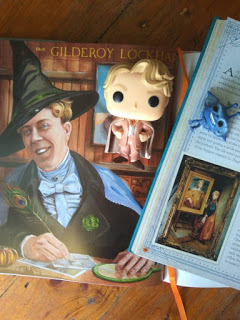
Narcissism has always been a human problem throughout the ages, but it's easier than ever to indulge in the 21st century, because we have so many outlets to toot our own horns. Our potential audience is not just neighbours in our close vicinity but people from all around the globe. Arguably, the wonders of social media give our narcissism cultural validation. The 1970s was called the 'Me Decade', and now there are claims that we've simply moved a step further to the 'iEra'. Christopher Lasch, in 'The Culture of Narcissism' suggests that it's simply the characteristic pattern of our culture. Ouch, I don't want to be swept along by that tide, but in our day and age, it's all too easy.
Several people have suggested that we just stop. Not only because it's a bad habit, but it makes us so miserable. They advise us not to check our social media updates often, or spend obsessive time on impression management, and if we're feeling unduly depressed, we should examine our hearts to determine whether or not it's simply because our brilliant post hasn't received as many likes, hearts, or shares as we'd hoped for (ouch again).
I believe going cold turkey is easier said than done. But maybe this list of mine could be an added tool to scare us out of our narcissistic habits, for who wants to see ourselves mirrored in these dudes? I'm calling them the greatest narcissists, but hey, they would call themselves the greatest, full stop.
1) Narcissus
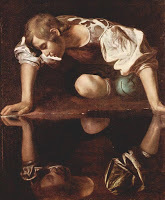
Since he provided the name, I'll kick off with this haughty and gorgeous young man from Greek mythology. He's lured to the side of a pool, where he beholds his own reflection and falls deeply in love with it. Not realising it's merely his own image, he's unwilling to leave, and eventually pines away, believing his love is not reciprocated. Hence, the term 'narcissism' was coined for people who have a fixation with themselves, their appearance and public perceptions.
2) Lucifer
He was hailed as the most beautiful angel of all, the bright morning star. But this wasn't enough for him. His enormous ego and thirst for adulation led him to challenge God's position. Whoa, that's some serious narcissism.
3) Dorian Grey
This young man is the (anti)hero of Oscar Wilde's masterpiece. His initial reaction when his portrait is unveiled is heartache because he won't stay so gorgeous. He vows to give his soul if only he can keep his wonderful beauty while the portrait grows old and faded instead. (My review is here.)
4) Gaston
 Belle's persistent suitor won't take no for an answer, because he truly believes he's too wonderful to resist for long. The hordes of village admirers do nothing to quench his vanity. In the movie, we see him saying, 'You are the most gorgeous thing I've ever seen,' and the scene pans out to show that rather than addressing Belle, he's standing before a mirror. He's prepared to take her by force toward the end, just because he can't stand the idea that she isn't head over heels in love with him, as every other girl seems to be. And whatever Gaston wants, Gaston gets, until now.
Belle's persistent suitor won't take no for an answer, because he truly believes he's too wonderful to resist for long. The hordes of village admirers do nothing to quench his vanity. In the movie, we see him saying, 'You are the most gorgeous thing I've ever seen,' and the scene pans out to show that rather than addressing Belle, he's standing before a mirror. He's prepared to take her by force toward the end, just because he can't stand the idea that she isn't head over heels in love with him, as every other girl seems to be. And whatever Gaston wants, Gaston gets, until now.5) King Saul
A biblical narcissist, he was Israel's first king. Saul started off okay, but succumbed to a deep need for everyone to call him the best, before he could relax. He built monuments in his own honour, and when he heard snatches of song that David was admired even more than he for his war conquests, he couldn't stand it. He set out to murder the perceived threat to his position on several occasions.
 6) Snow White's stepmother
6) Snow White's stepmotherIn a way, she was the female counterpart to King Saul. She had to stand before her magic mirror to reinforce that she was the fairest in the land before she allowed herself to get on with her day. And it was all for her personal glory. One day when she learns that another person is fairer, she sets off in a rage to have her killed, because being the second fairest in the land would be a disaster. Although she's the only female on this list, I'm sure there are as many girl narcissists as boys out there for real.
7) Bree
 There's no reason why they all have to be human, either. C.S. Lewis gave us a very narcissistic horse. Bree was always anxious to make sure everyone was aware that he was a noble, Narnian war stallion, and not a common stable hack. The thought that rolling on his back might be a vulgar Calormene habit he's picked up horrifies him. He's always clear that he's the boss of the mission, and the spurs and reins are just for show. Toward the end, he's humbled and chastised when circumstances prove that he's not the brave, perfect steed he thinks he is. And as Aslan says, it makes him a much nicer horse.
There's no reason why they all have to be human, either. C.S. Lewis gave us a very narcissistic horse. Bree was always anxious to make sure everyone was aware that he was a noble, Narnian war stallion, and not a common stable hack. The thought that rolling on his back might be a vulgar Calormene habit he's picked up horrifies him. He's always clear that he's the boss of the mission, and the spurs and reins are just for show. Toward the end, he's humbled and chastised when circumstances prove that he's not the brave, perfect steed he thinks he is. And as Aslan says, it makes him a much nicer horse.
8) Emperor Kuzco
Another animal, he's a llama throughout much of the story, although he starts off as a very spoiled, human brat. Even in his miserable transformed state, he keeps wanting to see the spotlight moved from the good-hearted Pacha back to himself, because he's the star! He's the teenage monarch who was prepared to demolish an entire peasant village to build himself a theme park in his own honour. Thankfully, he's young enough for some decent character development throughout the movie, where he learns empathy for others, in the nick of time.
9) Prince Hapi
While we're mentioning rulers, this one was played by Arnold Schwarzenegger in the 2004 movie version of Around the World in 80 Days. Clearly used to moving people as chess pieces, the prince demands that the trio of main characters come to his banquet, then insists on keeping the lovely Monique La Roche to join his harem. Their only way of enforcing her release is to threaten harm to the precious statue of himself, cast in the guise of the Thinker. It's well worth a watch.
10) Zap Brannigan
 He shows that narcissism will be alive and well in the future. The general public think he's a respected military hero, but his crew know him to be an arrogant and incompetent narcissist who will sacrifice them at the blink of an eye. He expends a lot of energy trying to foster his heroic illusion, and win the heart of Leela, whose one eye sees through him clearly enough.
He shows that narcissism will be alive and well in the future. The general public think he's a respected military hero, but his crew know him to be an arrogant and incompetent narcissist who will sacrifice them at the blink of an eye. He expends a lot of energy trying to foster his heroic illusion, and win the heart of Leela, whose one eye sees through him clearly enough.11) Caul
Without giving away too much of his role in the Peculiar Children series, the considerable effort he expends to rise to the top is all for his own personal glory. He's easily seduced by imagining himself in history books of the future, and is known to stop what is happening, so he can make lofty quotes and speeches for that purpose. (My reviews of the series begins here.)
12) Napoleon
I'm including the version of the mighty French emperor portrayed by Count Leo Tolstoy in War and Peace. It may be somewhat skewed, since Tolstoy was clearly on the Russian side of the war in his masterpiece. However, I'm sure he loved writing the narcissistic quirks of Bonaparte, including his passion for positive feedback and careful impression management for future history books. The fact that one man's drive to conquer Europe resulted in the deaths of millions is a dark side of narcissism that deserves to be highlighted. (My review of War and Peace is coming soon.)
And my favourite Narcissist
13) Gilderoy Lockhart

He's the Defence Against the Dark Arts teacher in Harry's second year at Hogwarts, who we first meet on a book tour for his autobiography, Magical Me. At that stage he comes across as an insufferable celebrity who has let fame go to his head. When Harry is placed in detention, Gilderoy's punishment is to get him to write replies to his extensive fan mail. He soon reveals himself to be more incompetent than his heroic memoirs and text books would have people believe. And at last, he's unveiled as a crook who has destroyed the real heroes, just to claim their glory for himself. He's prepared to blast Harry's and Ron's memories, not because he has anything against the boys, but because they know his shameful secret. What a guy!
A funny, but sort of sobering list. They're famous alright, but I doubt any of them would have wanted to be famous for being narcissists. As always, I'd enjoy reading your thoughts, not to mention any extra narcissists I may have missed.
Published on March 14, 2019 11:00
March 10, 2019
'The Magic Pudding' by Norman Lindsay
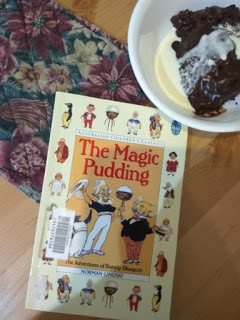
The adventures of those splendid fellows Bunyip Bluegum, Bill Barnacle and Sam Sawnoff, the penguin bold, and of course their amazing, everlasting and very cantankerous Puddin'.
MY THOUGHTS:
This kids' classic is a bit like an Aussie version of The Wind in the Willows, and it's my choice for the Africa, Asia or Oceania section of the 2019 Back to the Classics Challenge. It was published in 1918, the year of my grandmother's birth. Bunyip Bluegum is a fashionable young koala who sets out to be a gentleman of leisure, until he gets too hungry. He befriends Barnacle Bill the sailor, and Sam Sawnoff the penguin, who own a magnificent pudding named Albert, with the ability to replenish himself so they need never go hungry again.
Albert is a 'cut and come again' pudding, who enjoys offering slices of himself to everyone. For a change of flavour, you whistle twice and turn his basin around. I read one reviewer's complaint that you only ever seem to get steak and kidney, jam roly-poly, apple dumpling or plum duff. My instant thought was, 'Heck, what does she expect from a pudding?' That lady strikes me as a reader with no sense of wonder. He sounds pretty super-duper and worth the fuss to me.
The nefarious pudding thieves, Possum and Wombat agree, and concoct all sorts of sneaky mischief to steal Albert. Then the trio has to be just as crafty in getting him back again. There's a lot of punching and name calling, which probably delighted the good little children of early last century.
Talking about the target audience, it has some very mature concepts and expressions for a kids' book. For example, the wordy Bunyip Bluegum defends the truthfulness of his poetry with this line. 'The exigencies of rhyme may stand excused from a too strict insistence on verisimilitude, so that the general gaiety is thereby promoted.' Wow, I think several adults would have trouble getting their heads around that one, let alone middle school students. I'd love to think 9 to 12 year-olds would be willing to nut it out with their dictionaries, but do you think it's likely from our 21st century bunch? Are books like The Magic Pudding handy tools to stretch our kids' minds, or just relics from the past still being foisted on a generation no longer in the same head space? We'd never find such tricky sentences in modern stories for the same age group, but I wish a few would slip through, just to see how it would go over.
I think some of the low-key attitude take-aways were the coolest feature of this story.
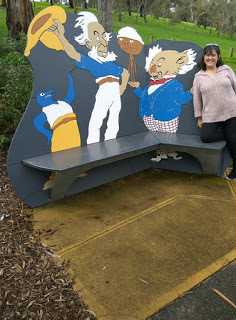
Bill is easily brought to the brink of despair several times, which makes it harder for his mind to latch onto problem solving solutions. But Bunyip's more optimistic nature makes him a more pro-active thinker, and he often saves the day. It's interesting to see an author from as far back as Norman Lindsay suggest to young readers that choosing our moods may help us switch on or off our creativity.
Albert is a cranky pudding with a sassy mouth, but the friends are willing to cop a bit of guff from him, considering the benefits he provides. He's my favourite character. I love his wise little wrinkled face. He strikes me as a chap who knows full well that people are just using him for what they can get. Even when the pudding owners consider that they've 'saved his life', it's all a matter of indifference to him. He seems just as content with Possum and Wombat, who are after all doing just what the trio of heroes do, which is eating him.
It's such a silly tale, but Norman Lindsay's illustrations, fantastic verse, and emphasis on the chilled, laid-back aspects of Australian life give it its special edge. There's plenty of relaxing over pudding slices and billy tea. 'If you don't sit by a campfire in the evening, you have to sit by nothing in the dark, which is a most unsociable way of spending your time.' Then morning turns out to have its own unique charm. 'It's the best part of the day, because the world has had his face washed, and the air smells like Pears soap.'
The little band's chosen lifestyle is wandering along roads, indulging in conversation, song and story. And their happy ending is removing to a secluded spot and settling down to a life of gaiety, dance and song. Sounds pretty good to me.
The ending is odd by today's standards. The cast give no indication all through the story that they know they are fictional characters, but then Norman Lindsay has his main duo finish this way. (Totally in character for both of them, I might add.)
Bill: Here we are close to the end of the book, and something will have to be done in a tremendous hurry or else we'll be cut off short by the cover.
Bunyip: The solution is perfectly simple. We have merely to stop wandering along the road, and the story will stop wandering through the book.
What do you think? Touch of brilliance or verging in the realm of too cute? Every reader will have to make up their own mind. I can honestly see both sides.
(The photo of me with the Magic Pudding gang was taken at the Story Book Trail at Aberfoyle Park, not far from home; a walk I recommend if you can.)
Published on March 10, 2019 13:44
March 3, 2019
Characters who refuse to take responsibility
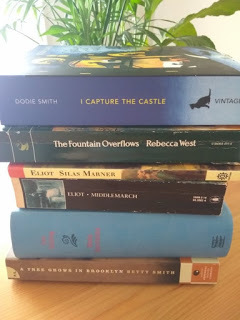
Okay, when you think of the stereotypical story, who is the hero's direct opposite? If you're like many including me, your reflexive answer may be, 'The villain.' It stands to reason that there's black and white, good and evil. That's why we have the likes of Voldemort, Emperor Palpatine, Captain Hook, Joker, the Wicked Witch of the West, and ultimately Satan, who is actually a character in Milton's Paradise Lost.
But not all stories are written with such obvious play-offs between good and evil, or such desperate stakes. It seems when I think about it, that in other, more low key stories, the good protagonist has another direct opposite. He's not the bad guy, but simply the fellow who can't be bothered. In these stories, apathy is presented as the opposite to caring. The heroes are good-intentioned men who are pro-active in improving their worlds. But then there's the man who prefers to flee, shrink away, or hide his heads in the sand like the proverbial ostrich. He's most expert at shirking personal responsibility, and here is my count down of examples.
Keep in mind, owing to the nature of these lists, there'll be a few plot spoilers.
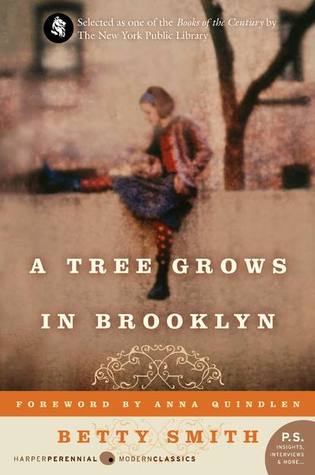 Johnny Nolan
Johnny NolanHe's a good-natured singing waiter who loves his little drink, but taking care of his young family is something he just can't step up to do. His wife Katie is the family breadwinner. It dawns on her early on, with two helpless babies, that if they rely on Johnny they'll starve. Her cleaning jobs become their lifeline. (See my review of A Tree Grows in Brooklyn)
Fred Vincy
This young Victorian man has no idea what to turn his hand to. He'd prefer to keep sponging off his parents forever than choosing a profession. But some of his money-wasting, reckless pastimes cause heartache to the girl he loves. Fred's theme in Middlemarch is realising that he has to step up and just choose something. He's one of the rare success stories from my list. (See my review of Middlemarch)
 Godfrey Cass
Godfrey CassThe squire's wishy-washy son once had an unfortunate fling with a poor village girl who died. When he discovers his anonymous baby daughter is destitute, he's not going to step forward and admit ownership. It'd ruin everything, especially his relationship with the elegant Nancy, who he hopes to marry. Staying silent while an old, eccentric weaver volunteers to bring up his daughter is by far the easiest action (or non). But circumstances make Godfrey regret it years down the track. (I love the line where his dad tells him, 'You hardly know your own mind well enough to make both your legs walk one way.') See my review of Silas Marner)
Stepan Oblonsky
Anna Karenina's smarmy brother has a plum government job and a disarming way of making everyone think he's a charming guy. He loves his affairs with multiple women, and always blocks out whatever he can't be bothered with, including his wife Dolly and their young children. But Stepan knows his good friend Levin is always around to pick up the slack and look out for their needs, which is just fine with him. (See my review of Anna Karenina)
Piers Aubrey
He's the unstable dad from Rebecca West's The Fountain Overflows. Piers keeps his family in a constant state of near starvation, because his entire focus is on the unpopular causes he chooses to support. He'll even take from the meager stores his family have, and gamble away furniture and other belongings. Eventually he walks out on them without warning. Luckily, his wife kept the value of a few heirlooms top secret, just because she knew him so well. (See my review of The Fountain Overflows)

James Mortmain
His first book was a brilliant hit, but he's suffered from writer's block and self-pity ever since, while his children have grown up cold and hungry. The kids figure out that fending for themselves is a wiser action than waiting for their father to come through with a new book. Until one day, Cassandra and Thomas decide to take matters in their own hands and force him to get words down on pages. (See my review of I Capture the Castle)
Philip Curtius
The talented, but undeniably wimpy wax sculptor takes the very young Madame Tussaud (Marie Grosholtz) under his wing. But he doesn't have the gumption to stick up for her when she's treated harshly by his business partner, the widow Picot. (See my review of Little)
Captain Ahab
The crusty old peg-legged sea captain of the Pequod is so intent on his revenge mission to destroy the whale Moby Dick that he'll jeopardise the safety of his whole crew to achieve it. Irresponsible and stark crazy make a bad combination, especially when you're the boss of the whole voyage. (See my review of Moby Dick)
 Victor Frankenstein
Victor Frankenstein This young science student turns his back on his own creation, who is helpless and clueless at that stage. And the only reason is because of how he looks. As soon as he sees his project animated, Victor panics and flees, hoping it'll just disappear. His refusal to take responsibility helps make him and the monster equal hero/villains, which is why I consider this the most interesting example. (See my review of Frankenstein)
Running my eyes down the list, the most disturbing trend is that the majority of these guys are fathers or in a fatherhood role. That includes Frankenstein as creator. It wasn't my intention when I started, but surprises me in retrospect. The fact that I've drawn this list from a wide range of sources and time periods speaks volumes, considering the emasculation of dads that frequently occurs in our modern media. It seems the sorry stereotype of the clueless, useless moron who sits around while his wife pulls everything together has generations of fuel from which to draw. Perhaps we should take it as a sign that the world has always cried out for solid, dependable, sturdy and reliable family men who'll take a stand and be rocks instead of jellyfish. Let's keep looking out for real life heroes and applauding them when they come.
Published on March 03, 2019 10:00
February 24, 2019
'My Brilliant Friend' by Elena Ferrante
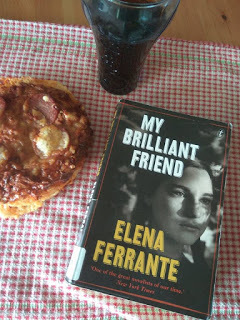
A modern masterpiece from one of Italy's most acclaimed authors, My Brilliant Friend is a rich, intense and generous hearted story about two friends, Elena and Lila. Ferrante's inimitable style lends itself perfectly to a meticulous portrait of these two women that is also the story of a nation and a touching meditation on the nature of friendship. Through the lives of these two women, Ferrante tells the story of a neighbourhood, a city and a country as it is transformed in ways that, in turn, also transform the relationship between her two protagonists.
MY THOUGHTS:
All reports that this is a fascinating book are quite true. I'd call it a psychological suburban novel. The prologue introduces us to the narrator Elena, a senior lady who's just found out her lifelong friend Lila has disappeared. But rather than being concerned, Elena suspects it's just something Lila imagined doing for a long time and finally pulled off.
So she gets out her pen to write about the history of their friendship, which comprises the rest of the book. It describes how Lila helped Elena through all sorts of challenges, including school assignments, which she never got the chance to study herself. And it draws in a whole lot of their friends and family, since everyone's story crosses those of others.
My first impression of Lila had a negative tinge, because I thought, 'Who does that?' Who's mean enough to pull a deliberate disappearing act, putting those close to them through hell? As the story heats up though, it's easier to absolve her, when we see how people have thwarted this girl's ambition and creativity for years. It begins when she's the smartest kid in her class, yet her controlling father decides she's had enough formal education. Whenever Lila tries to re-direct her flair and intellect into the narrow channels left, some other bozo pops up, with the power to stuff her up. She tries to design her own line of shoes in her father's shoemakers' shop, and you have to read it to see what happens. Whenever Lila's stifled, it's as if her brilliance tries to leak out of any crack it can find. But one by one, they're all patched up by clueless people.
So it's easy to understand why removing herself entirely might appeal to her. But is her best friend Elena's reaction passive-aggressive, rather than the loving act it may appear on the surface? Perhaps writing her memories of their past down in a book becomes the latest way of foiling Lila's intentions. Basically, she's saying, 'If she thinks she can erase herself, I'll leave a trace of her that she can't touch.'
The main story starts when they're small girls living in a poor, struggling suburb in 1950's Naples. Her relationship with Lila means the world to Elena, although it causes pain as much as happiness. Lila's life shows that being feisty can't get you everything, but she still has something Elena can't stop envying - the knack of making everything she touches seem more desirable than anything else.
Elena has everything Lila ever seemed to want, but finds it hard to enjoy. 'What I did by myself couldn't excite me. Only what Lila touched became important.' Even though Elena is living what appears to be the life of both their dreams, she can't stop feeling second rate and hackneyed. And to add yet another layer, we wonder whether this inferiority is even based in reality, or just in Elena's own head.
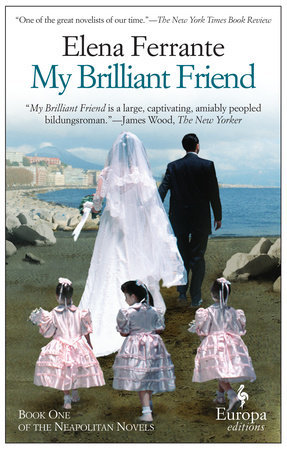 It's all told from Elena's point of view, but we can't help wondering whether or not Lila is even aware of the power of fascination and originality she wields. Every so often, she lets something slip which suggests that she considers Elena the superior one, because of her tact and ability to get along with people. Lila wonders if she herself has a knack of bringing badness out of others. And there's an impossible to miss ironic moment when she calls Elena her brilliant friend. What a role reversal.
It's all told from Elena's point of view, but we can't help wondering whether or not Lila is even aware of the power of fascination and originality she wields. Every so often, she lets something slip which suggests that she considers Elena the superior one, because of her tact and ability to get along with people. Lila wonders if she herself has a knack of bringing badness out of others. And there's an impossible to miss ironic moment when she calls Elena her brilliant friend. What a role reversal.Here's a tribute from Elena to Lila. 'She took the facts and in a natural way, changed them with tension. She intensified reality as she reduced it to words. She injected it with energy.' That sort of subtle detail really gets to the crux of what makes Lila shine as special. But does Elena stand out herself, for having the perception to detect these details?
The school chapters remind me what a nightmare that phase of our lives can be. It's the time when pecking orders are set up, based on performance and one-upmanship. We're completely fixed on comparing our reputations and abilities to others, and although we're not one hundred percent sure they're playing the game as hard and sneakily as we are, we assume it's true. As time progresses in this story, everyone grows up and puts on their pleasant adult masks. But we readers are aware of the childhood issues of a whole range of characters, and a simmering impression that they've just been swept under the carpet.
The male characters are super touchy, which comes across as a learned, cultural behaviour, especially when something like a sister's honour is at stake. Aggression and a quick fuse is a sign of perfect masculinity in their time and place. If someone mentioned such things as staying aloof or taking the higher ground, I doubt these fellows would even understand what they were talking about.
In case you haven't guessed, there's not only the two main characters, but a whole cast of friends and siblings to keep track of. And that takes some effort at times, with all the similar sounding Italian names. Three of the boys are called Nino, Gino and Rino for a start. I have the feeling that when we move on with the rest of the Neapolitan series, this mob is going to keep giving us a real soap opera. Even minor characters are depicted with a similar depth as the main pair of girls. You could easily write a whole essay on every single one of them.
Apart from her body of work, there's the mysterious legend of author Elena Ferrante herself, who pulled a similar stunt to her character Lila, as far as the world of celebrity authors is concerned. Her name is a pseudonym and her identity remains unknown. She insists on staying anonymous, and makes a lot of sense when she says a novel being launched into the world doesn't really need its author. The characters and plot are surely all we really care about, so shouldn't their creator be allowed to enjoy peace and quiet if she wants to?
Human nature being as it is, many people have chosen to take her stance as a challenge, rather than a preference. Even style experts have joined the quest, carefully comparing her prose to those of other established authors, hoping to strike a match. But all to no avail so far. I can't help hoping Ferrante always stays successful at keeping herself a secret, for as long as that's what she wants.
I won't give it full marks, because some of the characters and their poor choices caused me to groan and face-palm so much. Some might argue that's actually a good reason for giving it five stars, and although I'm inclined to agree, I'm going with four. Just for interest, has anyone read all four novels in the series?
This counts toward my 2019 European Reading Challenge as a selection set in Italy.
Published on February 24, 2019 13:23
February 20, 2019
Great words about the Sea

This week marks our first anniversary in our new house. We moved from our town in the Adelaide Hills where we've lived for over twenty-five years to a seaside suburb. The need to move was fairly sudden, and I felt devastated at the time. But it didn't take long for the beauty of living so close to the beach to win me over. To mark the occasion, I thought I'd collect a list of quotes from authors who have agreed with me about the restorative power of the ocean, and put it in their own unique words.
'The sea does not reward those who are too anxious, too greedy or too impatient. One should lie empty, open, choiceless as a beach, waiting for a gift from the sea.'
Anne Morrow Lindbergh
'I had my first view of the Pacific Ocean. To say it is beautiful does not half express it. It is simply beyond words. The water is such a a deep, wonderful blue and the sound of the waves breaking on the beach and their whisper as they flow back is something to dream about.'
Laura Ingalls Wilder, (during a visit to San Francisco, in a letter home to her husband. Here's my review of West From Home.)
'The waves rolled in like metal tubes carrying an egg white of foam on their peaks that broke into a thousand glittering splinters'
Elena Ferrante, from My Brilliant Friend (Review coming soon.)
'There is nothing more beautiful than the way the ocean refuses to stop kissing the shoreline, no matter how many times it is sent away.'
Sarah Kay
'How inappropriate to call this planet Earth, when it is clearly Ocean.'
Arthur C. Clarke
'You must not lose faith in humanity. Humanity is an ocean; if a few drops of the ocean are dirty, the whole ocean does not become dirty.'
Mahatma Gandhi
'To me, the sea is a continual miracle. The fishes that swim, the rocks, the motion of the waves, the ships with men in them. What stranger miracles are there?'
Walt Whitman
'I wish I could see how the ocean is lashing
The foam of its billows to whirlwinds of spray.
I wish I could see how its proud waves are dashing
And hear the wild roar of their thunder today.'
Anne Bronte
'When anxious, uneasy and bad thoughts come, I go to the sea and the sea drowns them out with its great wide sounds, cleanses me with its noise and imposes a rhythm upon everything in me that is bewildered and confused.'
Rainer Maria Rilke
There are many others, but those are some of my favourites. That's me wading in the photo above, taken by my daughter.
Published on February 20, 2019 12:39
February 17, 2019
A Patron Saint for Fangirls?
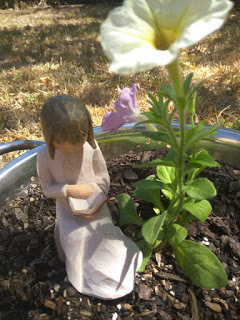
Disclaimer: Although I use the term 'fangirl' throughout this reflection to match my gender, it also applies to 'fanboys' and 'fanpeople' in general.
I am always on the lookout for role models from stories and history, to help direct the way I live and think. I used to fail dismally in living up to them, but figured out that was mostly because my choices were too different from me, and therefore set impossible standards. Now I'm making a point of choosing people whose traits match aspects of my own character, and this girl cries out to the strong reader, lover of stories and eager fangirl I've always been. If you relate to this reflection, you may well be the same.
Do you enjoy a good story? You look forward to reading a book, watching a movie, or listening to a podcast simply for curiosity. The fun of finding out a new fact, making an unprecedented connection or adding new favourite characters to your book lists is what drives you. The phrase, 'fascinating discovery' makes your ears twitch. Maybe you just want to know who's going to get married by the end of the novel, or who the bad guy is. And you've covered the backs and fronts of several pieces of paper with scribbled notes.
But an obvious drawback makes you sad. If someone asks the purpose for your reading and research, you'd be hard pressed to make a decent reply. You're not brilliant enough to add anything great to the world of science, engineering, politics or education. You can't point out a single soul who benefits directly from your love of listening and learning. It's nothing like the helping professions. (See The Modest Letter Q) You're merely very interested, but that's the limit. And however much you'd love to believe otherwise, something tells you being a fangirl isn't a skill, it's a luxury. Is it self-indulgent, though? Are you wasting your time, by taking in without the means of giving much out? Those are discouraging questions, and enough to make you wonder if you're pulling your weight on this planet.

That's why this Biblical girl is one of my favourite role models. Mary was sitting near Jesus with her eyes fixed on his face, captivated by every word he spoke. But Martha, her bossy older sister, poked out her head to pay her out for not helping in the kitchen. Martha put Mary in the embarrassing position of drawing their house guest into the tense family dynamics. 'Don't you think she should be helping me cook, serve and scrub up instead of sitting out here enjoying herself?' (In the same way, you've probably heard, 'Put down your book,' or 'Turn off the computer.' The ultimate message we get is, 'Do something that really helps and makes a difference.')
His reply probably shocked both of them. 'Martha, you're stressed out with many things on your plate, but Mary has chosen the best one of all, and who am I to deprive her of that?' Wow, he didn't say her choice was equally good, but even better. That's the statement that helps put our habit of idle curiosity into context. Could it be that being a fangirl is a gift after all?
One thing always surprised me about this story. We don't even get to know the subject of his discourse. What was he was even talking about to enthrall her so? Was it one of the stories or parables which are recorded elsewhere, or something entirely new? Was whatever it was worth risking a tongue lashing from Martha? Hey, if Mary was so spellbound, I'd like to get the inside scoop too. Why aren't we told, so we can share the benefit, or at least decide if we agree it was worth listening to?
But we don't get to find out, because it's beside the point. In this incident, the focus isn't on the master storyteller so much as his audience, and her reaction. Her attitude impresses him as totally commendable, to the point where he calls it a perfect use of her time. And she didn't even appear to do anything mindblowing with whatever she learned. There's no 'Book of Mary'. Her receptive, interested heart was enough. She enhanced her own life, which no doubt spilled over in quiet ways to those she brushed shoulders with. Maybe when a receptive, interested heart is the best we have to offer, it's enough from us too.
People often bring up counter points about this story. If you're thinking, 'Yeah, well somebody has to cook the meal and do the dishes,' I agree hard, tangible work is a great thing too. And sometimes people in Martha's position are quite right to speak up. But hard workers often get the pats on the back they deserve, because the results of their industry is pretty much in our faces. This little anecdote is highlighted for a different reason. Could it be that those with their heads in the clouds, being scoffed at as lazy slackers may deserve accolades too? What we take in through our reading, viewing and study does make a difference. It shapes us and what we have to offer in invisible but deep ways. You may hazard a guess that in this story, Jesus was talking about holy, spiritual things, but I'm writing this reflection with the understanding the many things under the sun are worth getting enthusiastic and excited about for the good they contain. And if somebody has to listen and take it in, let it be us.
So read on, my fellow nerds! Watch the documentary, learn how that game works, tell us your favourite novel from a particular series and why. When I'm feeling a bit fruitless, I sometimes think of Mary, who was never actually called the patron saint of fangirls (and guys) but might well have been.
Published on February 17, 2019 10:00
February 13, 2019
Literature's Most Awkward Marriage Proposals
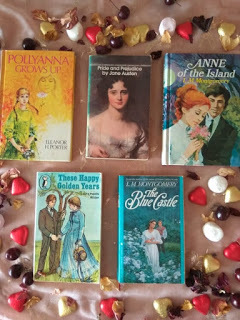
Here's an old blast from the past in honour of Valentine's Day.
I understand that guys may have an anxious time when planning how to pop such a vulnerable, potentially life-changing question. Most of these books were written by women who either wanted a bit of a laugh, or to prove that being put on the spot and having to come up with an answer isn't always easy either. So here are several cringe-worthy examples from the pages of great novels, ranging from the mildly awkward to the truly terrible.
1) The Indirect Approach - Almanzo Wilder to Laura Ingalls
Putting out feelers may be fine, but look out for quick witted girls.
Almanzo: I was wondering if you'd like an engagement ring.
Laura: That would depend on who gave it to me.
Almanzo: If I should?
Laura: Then it would depend on the ring.
(From 'These Happy Golden Years' by Laura Ingalls Wilder. My review is here.)
2) The Ultimatum - Maxim de Winter to his second wife
Such sternness isn't the traditional way to go, and may lead to confusion. Following up with an insult doesn't help either.
Maxim: Either you go to America with Mrs Van Hopper or you come home to Manderley with me.
Young Heroine: Do you want a secretary or something?
Maxim: No, I am asking you to marry me, you little fool.
(From 'Rebecca' by Daphne du Maurier. My review is here.)
3) The Proxy - Billy Andrews to Anne Shirley
Guys, however nervous you feel, please be man enough to at least ask her in person.
Jane: Anne, what do you think of my brother, Billy?
Anne: I don't understand. Why... I like him, of course.
Jane: Would you like him for a husband?
Anne: Whose husband?
Jane: Yours of course. Billy wants to marry you. He's always been crazy about you, and now father has given him the upper farm in his own name, and there's nothing to prevent him from getting married. But he's so shy, he couldn't ask you himself if you'd have him, so he got me to do it.
(From 'Anne of the Island' by L.M. Montgomery)
4) 'Just let me check' response - Jimmy Pendleton to Pollyanna
This was a delicate situation, and no fault of the hero. Pollyanna was in love with her childhood friend Jimmy, but suspected that his adopted father, John Pendleton, intended to propose to her himself. Since Pollyanna's mother had broken John's heart, she felt obligated not to repeat history. Poor Jimmy didn't know the craziness he was entering into.
Jimmy: You mean you'd marry him, Pollyanna?
Pollyanna: No! I mean..er... yes, I suppose so.
Jimmy: Pollyanna, you wouldn't, you couldn't. You're breaking my heart.
Pollyanna: I know it, I know it! I'm breaking mine too. But I'll have to do it. I'd break your heart, I'd break mine, but I'd never break his.
Jimmy: Alright little girl, it'll have to be as you say. But surely never before was a man kept waiting for his answer till the girl he loved, and who loved him, found out if the other man wanted her.
(From 'Pollyanna Grows Up' by Eleanor H Porter. My review is here.)
5) The Condescension Approach - Fitzwilliam Darcy to Elizabeth Bennett
Don't ever begin a marriage proposal by telling the lady that it was against your better judgment!
Darcy: In vain have I struggled. It will not do. My feelings will not be repressed. You must allow me to tell you how much I admire and love you.
(Then when she ticks you off as you deserve, don't stick your foot in it even more!)
Darcy: Could you expect me to rejoice in the inferiority of your connections? To congratulate myself on the hope of relations whose condition in life is so decidedly beneath my own?
Elizabeth: You are mistaken, Mr Darcy, if you suppose that the mode of your declaration affected me in any other way than as it spared me the concern which I might have felt in refusing you had you behaved in a more gentleman-like manner. You could not have made me the offer of your hand in any possible way that would have tempted me to accept it.
(Bravo Elizabeth. He's lucky he got another chance.)
(From 'Pride and Prejudice' by Jane Austen)
6) The Tactless Approach - Rhett Butler to Scarlett O'Hara
If you want to propose to a lady, don't go on the very day of her former husband's funeral! She'll consider it bad taste.
Rhett: My news is this. I still want you more than any woman I've ever seen, and now that Frank's gone, I thought you'd be interested to know it.
Scarlett: I... you are the most ill bred man in the world, coming here at this time of all times, with your filthy... and Frank hardly cold. If you had any decency... would you leave this...?'
Rhett: Hush, I am asking you to marry me. Would you be convinced if I knelt down?
(From 'Gone with the Wind' by Margaret Mitchell)
7) The Divine Edict Approach - St John Rivers to Jane Eyre
Claiming that you speak for God as well as yourself must be the ultimate pressure. This has got to be one of literature's most unromantic proposals.
Rivers: Jane, come back with me to India. Come as my helpmeet and fellow labourer. God and nature intended you for a missionary's wife. It is not personal but mental endowments they have given you. You are formed for labour, not for love. A missionary's wife you must, shall be. You shall be mine. I claim you not for my pleasure but for my sovereign's service.
(From 'Jane Eyre' by Charlotte Bronte. My review is here.)
8) The Role Reversal Approach -Valancy Stirling to Barney Snaith
It's a very brave move for a girl to propose to a guy. Expect him to be surprised, and it might help to have something up your sleeve.
Barney: Going home, Miss Stirling?
Valancy: I don't know... yet.
Barney: I thought I'd run down and see if there was anything I could do for you.
Valancy: Yes, there is something you can do for me. Will you marry me?
Barney: Come now. I knew luck was just waiting around the corner for me. All the signs have been pointing that way today.
Valancy: Wait. I'm in earnest. Of course with all my bringing up I realise this is one of those things a lady shouldn't do.
Barney: But why... Why?
Valancy: For two reasons. The first is I'm crazy about you. The second is... this.
(From 'The Blue Castle' by L.M. Montgomery. My review is here.)

I hope you enjoyed this face palming post, brought to you from my memory and a quick bit of flipping back through books. Do you see any favourites there?
Published on February 13, 2019 10:00
February 10, 2019
'Walden' by Henry David Thoreau
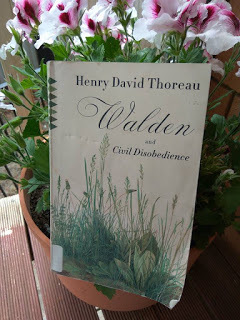
Originally published in 1854, Walden; or, Life in the Woods, is a vivid account of the time that Henry D. Thoreau lived alone in a secluded cabin at Walden Pond. It is one of the most influential and compelling books in American literature. This new paperback edition-introduced by noted American writer John Updike-celebrates the 150th anniversary of this classic work. Much of Walden's material is derived from Thoreau's journals and contains such engaging pieces as "Reading" and "The Pond in the Winter" Other famous sections involve Thoreau's visits with a Canadian woodcutter and with an Irish family, a trip to Concord, and a description of his bean field. This is the complete and authoritative text of Walden-as close to Thoreau's original intention as all available evidence allows. For the student and for the general reader, this is the ideal presentation of Thoreau's great document of social criticism and dissent.
MY THOUGHTS:
Not many authors have more of a romantic vibe than this guy. Maybe a deep desire to simplify and slow down keeps tourists flocking to the replica of his little house at Walden Pond. Even though he's been dead for over a century, people still hope to catch some of Thoreau's inspiration from just sitting where he sat. He was living the self-sufficient, off-the-grid dream of many of us, which made me choose to read this book for the American classic category of the 2019 Back to the Classics Challenge.
Basically, Henry David Thoreau decided to escape from the hustle and bustle of normal life and be his own master. So he built a tiny house a mile from his home town, furnished it with basic essentials and figured out that he could live off 27 cents per week. He stretched six weeks of work a year to cover expenditure for the remaining 46, which he spent getting up at his leisure, enjoying nature and recording his thoughts. It sure does sound like an appealing lifestyle.
Walden is an eye-opener though, making me consider that Thoreau might have been an intimidating person to get to know. I was used to thinking of him as a hero who gives eloquent encouragement to jump off the treadmills of public opinion and modern living. But the Thoreau I find within the pages tends to be a hardcore fanatic whose views swing further than I thought in the other direction. I've no doubt that no matter how well we feel we've pared down our lives, the real Thoreau might still dismiss us as worldly conformers. Here are just a few things he has to say about various subjects.
Decorations and Ornaments
'I had three pieces of limestone on my desk but was terrified to find they needed dusting daily, when the furniture of my mind was all undusted still, and I threw them out the window in disgust.'
Clothing
'Remember their main objectives are to retain the vital heat and cover nakedness. When you do wear them to pieces, they meld to your character.'
Worldly Goods
'When I have met an immigrant tottering under a bundle which contained his all, I have pitied him, not because that was his all, but because he had all that to carry.'
The 7 Wonders of the World
'As for the pyramids, there is nothing to wonder at in them so much as the fact that so many men could be found degraded enough to spend their lives constructing a tomb for some degraded booby, whom it would have been manlier and wiser to have drowned in the Nile and then given his body to the dogs.' (I guess that ties in with his opinion on working for bosses.)
Also, he maintains a sort of smug tone, that's a bit on the nose. Being confident in your own ethic while going against the norm is great, yet sometimes it's hard to turn a blind eye to Thoreau's show-offy, superior attitude. It's like sitting in on one man's long back-patting session. A prime example is the way he pays out John Field, a destitute Irish immigrant with a wife and several small children, for struggling not to starve. 'Poor John Field, thinking to live by some derivative old mode in this primitive new country. I trust he will not read this unless he can improve by it.' I wonder if any of Thoreau's friends ever reminded him of the following points, which indicate that his case was different from Field's in other ways too.
1) You're single, which means only one mouth to feed.
2) You don't even own the land you're living on. Ralph Waldo Emerson is letting you squat. Others aren't so lucky.
3) Being a local boy, you have frequent visitors from friends and family, who no doubt bring potluck dinners.
4) There's always the option of packing up and moving back to your parents' place in Concord. In fact, you only lasted two years anyway.
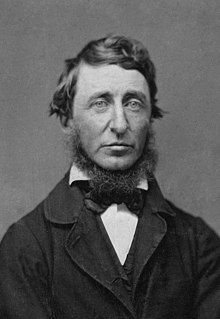
That last point was one of the biggest surprises for me, as I'd picked up the book imagining him settled on the banks of the pond for at least a decade. He only did it for two years! It sounds like such a short time for anyone not to lose a bit of face, but he explains it with his usual dash of pomposity. 'I left the woods for as good a reason as I went there. Perhaps it seemed to me that I had several more lives to live, and could not spare any more time for that one.' Yeah, okay Thoreau.
Some of the people he stumbles across are the unsung heroes of the book, whether or not Thoreau intended them to be. I love the self-professed dumb guy, who said he'd always been intellectually deficient from childhood, but guessed that the Lord loved him just as much as the smart guys, since he made him that way. Maybe he's the smartest of all. Thoreau called him a 'metaphysical puzzle.' But he balances it by having digs at clever people too, who he calls, 'men of ideas instead of legs. A sort of intellectual centipede that made you crawl all over.' Nobody is spared from his sharp pen.
In spite of being disillusioned in the ways I've mentioned, his legend continues. He's still such an enigma, and so much irony surrounds him. 'I say let your affairs be two or three, not a hundred or a thousand.' Even though he was such a stickler for not taking on multi roles, so many people from different walks of life still want to claim him as their own, including philosophers, nature writers, poets, minimisers, self-help gurus, relaxation therapists, business men, environmentalists, and the list goes on. I'm glad I read it, although I feel inclined to give it two stars, since it was a bit of a slog and very hard to wallow through at times. Maybe I'm just one of those more intellectually dense people he discusses, who don't fall under its spell. But because I admire the dude for making himself a celebrity by doing nothing much at all for a period of time, I'll add an extra one.
Published on February 10, 2019 13:59
February 3, 2019
'Little' by Edward Carey
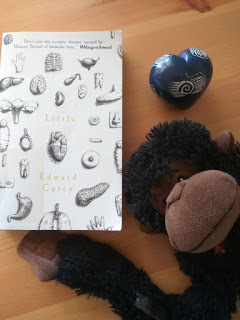
In 1761, a tiny, odd-looking girl named Marie is born in a village in Switzerland. After the death of her parents, she is apprenticed to an eccentric wax sculptor and whisked off to the seamy streets of Paris, where they meet a domineering widow and her quiet, pale son. Together, they convert an abandoned monkey house into an exhibition hall for wax heads, and the spectacle becomes a sensation. As word of her artistic talent spreads, Marie is called to Versailles, where she tutors a princess and saves Marie Antoinette in childbirth. But outside the palace walls, Paris is roiling: The revolutionary mob is demanding heads, and . . . at the wax museum, heads are what they do.
MY THOUGHTS:
Oh wow, there are some rare books which you know will be a benchmark for the rest of the year, and this is one of them. Eccentricity and wisdom makes for a dynamite duo, and this novel has both in spades. Its weirdness is used to reveal subtleties about how our world chugs along, and Edward Carey keeps it coming through his main character, Marie.
It'd be fair to call it a faction (blend of fact and fiction) since it's based on the life story of Madame Tussaud, told from her own fictional perspective. About time it was done, because she lived an incredible life. Marie Grosholtz was orphaned very young, and became an apprentice to Philip Curtius, a skilled wax sculpture, with whom she moved to Paris and helped set up a house of exhibits. In young adulthood she spent a stint at Versailles as art tutor to Princess Elisabeth, the younger sister of King Louis XVI. She also witnessed Marie Antoinette giving birth. And later during the French Revolution, her services were in high demand, as former celebrities were being guillotined in droves, and she was given only their heads to work with.
It was all so long ago, Carey had the right to use some poetic license to fill gaps, but he's done heaps of research and I'm awed by his version of Marie, and the endearing voice he's given her. She starts off as a premature, undersized newborn who survived despite the odds. 'A pig-headed, pocket-sized thing', which sets her up as a stubborn survivor all through the story. There was so much against her, including self-professed terrible looks and no extended family to look out for her. (Believe me, her likeness shown here is far more attractive than her description in the novel.) Yet Marie is left standing, often to her own surprise, long after some of the more privileged and pampered characters have passed on.
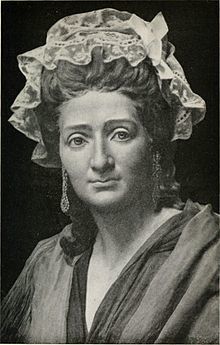
I believe her resilience is partly because of her unique way of taking life's twists and turns in her stride. Marie has the skill of noticing tiny details others overlook. She always describes her revelations in her own strange, slightly dark way, and accepts unfairness and injustice on the chin, because she latches onto the deeper reasons. About her nemesis, the Widow Picot, she says, 'Perhaps she needed someone beneath her to know for sure she wasn't on the bottom rung. Perhaps being cruel was proof of her success.'
I think there's a combination of true and made-up characters, and I won't forget Curtius' pushy, loud business partner, widow Charlotte Picot, and her pale, self-effacing son Edmond. Or Jacques Beauvisage, the street kid they hire who collects stories of murders. And they all live in a house which is believed to be haunted by the ghosts of former monkey occupants. I'll finish with a few examples of my favourite human nature lessons that emerge from Marie's experiences.
1) It dawns on the household that casting figures of murderers and villains is often an even greater draw card to the public than beloved heroes, because of human fascination with evil and depravity. This eye-opener prompts the widow to tell their good friend Mercier that his wax likeness will have to hit the trash, because, 'We accept only the very best and very worst heads. And yours, like the great multitudes', lies somewhere in between.' How true.
2) There's Marie's Eureka moment, when she twigs that her own creativity gives her an emotional tie to the work itself. 'There's the queen, but not only she, but Marie Grosholtz too, both alive in that head. The moment I realised that, I couldn't stop.'
3) But sadly, she discovers the tendency for people to want to believe they're greater than they really are. She knows that wax is a limited medium because it's too honest, while others, like portraiture, can get away with all sorts of flattering lies. She gets into hot water at the palace, when the royal family think she's judging them as pigs in a sty, while Marie didn't set out to do any such thing and knows her models are accurate.
There are great descriptions of pre-Revolutionary France, which I'm sure would've been authentic. 'Here, opposites mixed; flour-covered wig-makers' assistants beside coal carriers, thick with black dust.' I love the images such sentences create in our minds. And Edward Carey's art work and illustrations all through the book prove that there really is a place for pictures in adult novels. If I haven't convinced you all to read this book yet, it also has one of the best and most deserved punch in the face scenes. The entire story took Carey 15 years to write, and the quality shows.
This counts toward my 2019 European Reading Challenge, as a selection set in France.
Published on February 03, 2019 10:00
January 27, 2019
The Cannonball Effect

Once I was browsing through a library book, "A Complaint Free World" by Will Bowen. One anecdote stands out in my mind, perhaps because we are at the start of another new year. It's about a house painter named Mike who had an idea to dip a standard baseball in leftover paint at the end of each day in his garage, just out of idle curiosity to see how big it would get. The result was astounding.
Will Bowen and his daughter were invited to come and see it after Mike had been doing the daily dip for several years. They found a massive thing, the size of a cannon ball hanging from steel girders. He asked them if they'd like to apply that day's coat of paint, and it took them 15 minutes to get it evenly covered. What amazed them all was the fact that each individual coat of paint was about the width of a hair. Visible proof that lots of small actions, if persisted in, result in something formidably huge.
Bowen took it as an analogy for his complaint free world. Each individual decision to stay cheerful and not make an issue of annoyances may result in a transformed personality which automatically leans toward the optimistic option. I started to reflect that the principle applies to absolutely anything we can think of.
We all know that individually, one delicious chocolate truffle or Cadbury Freddo frog doesn't contain enough calories to put on much weight. If you indulge in them a lot, though, they become like those coats of paint, and your waistline ends up much thicker. One jog up a steep mountain path may result in no difference on the scales, which contestants on "The Biggest Loser" have discovered many times, but making a habit of it can get that flab moving. Brain science has shown that one thought, repeated over again several times, results in an entrenched attitude that wears a pathway, similar to the ones we used to see worn across the paddock near our house, by lots of pedestrians taking short cuts to the wetlands.
Each late December I hear plenty of negative comments about making new year's resolutions. "We might as well not even bother. By February, we're back to our old habits, or April at the latest." But that's a gloomy attitude masquerading as realistic. By February, the baseball hasn't grown very big at all, and it's easy to look at the thinness of each individual coat of paint. It's right about then that we could benefit from reminding ourselves about the huge, impressive cannonball we could create, if only we persevere. I like new year's resolutions and usually begin a couple every January. I'd encourage everyone to do the same, if there's something in your life you wouldn't mind reversing or changing.
Even if you decide, "I need to accept myself more, and not get into the self-help trap of thinking there's always something wrong with me that I need to change," that's still a resolution. In fact, that may well be one of mine.
Mother Teresa vividly showed this principle with the poor in Calcutta, that thousands of small gestures, repeated over and over, may produce a wonderfully productive and difference-making life. It doesn't have to be that grandiose or self-sacrificing. I'd extend the analogy to smiling at strangers, cooking nutritious meals, reading more books, writing a book, or keeping up a blog like this one. Or maybe we could get into the habit of giving others the benefit of the doubt, choosing to not take offence, or just making an effort to purposefully look out for lovely, mood-brightening things each day.
I wish everyone who may read this a hopeful, healthy and productive 2019.
Published on January 27, 2019 10:00
The Vince Review
Author, blogger, reader, reviewer, mother of three. All this goes under the mantle of 'stay at home mum'. I also love walking and cooking when the mood strikes me. Getting stuck into a good book has a
Author, blogger, reader, reviewer, mother of three. All this goes under the mantle of 'stay at home mum'. I also love walking and cooking when the mood strikes me. Getting stuck into a good book has always been one of the best things ever.
I invite you to treat this blog like a book-finder. People often ask the question, "What should I read next?" I've done it myself. I try to read widely, so hopefully you will find something that will strike a chord with you. The impressions that good books make deserve to be shared.
I read contemporary, historical and fantasy genres. You'll find plenty of Christian books, but also some good ones from the wider market. I also read a bit of non-fiction to fill that gap between fiction, when I don't want to get straight on with a new story as the characters of the last are still playing so vividly in my head. ...more
I invite you to treat this blog like a book-finder. People often ask the question, "What should I read next?" I've done it myself. I try to read widely, so hopefully you will find something that will strike a chord with you. The impressions that good books make deserve to be shared.
I read contemporary, historical and fantasy genres. You'll find plenty of Christian books, but also some good ones from the wider market. I also read a bit of non-fiction to fill that gap between fiction, when I don't want to get straight on with a new story as the characters of the last are still playing so vividly in my head. ...more
- Paula Vince's profile
- 108 followers



